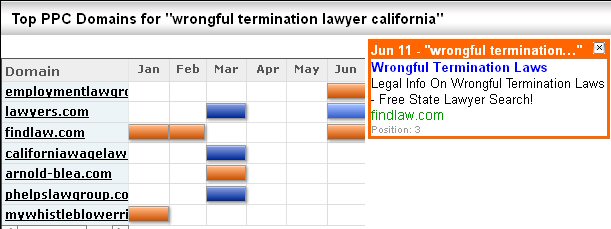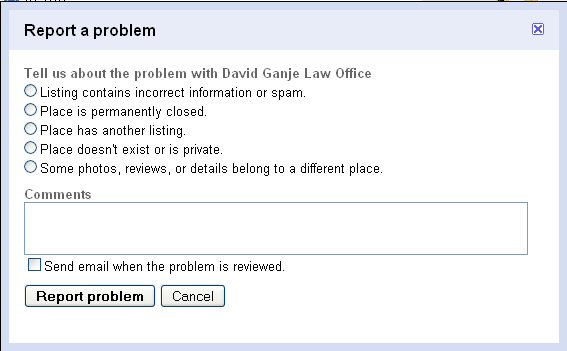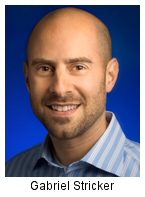Guiding New Clients on the Journey to Retaining You
When you open a file, it's the end of a successful customer journey for the client — a trip that was influenced on the way by email, online searches, social media and referrals. Search engine giant Google recently unveiled data about which law firm marketing tactics are most influential in guiding that journey to a "customer purchase decision."
 Which technique is the most effective? Savvy marketers understand that you don't always seal the deal with a single tactic. A client may see a display ad, click on a link from a friend, or do a search before deciding to select you for their legal matter.Google's online tool reveals online buying behavior and shows how different marketing interactions affect business success.
Which technique is the most effective? Savvy marketers understand that you don't always seal the deal with a single tactic. A client may see a display ad, click on a link from a friend, or do a search before deciding to select you for their legal matter.Google's online tool reveals online buying behavior and shows how different marketing interactions affect business success.
Every lawyer wants to "close" a new client, but that won't happen without marketing to consumers at the start of their journey, when they (a) become aware of a lawyer, (b) begin to consider the attorney, and (c) form an intent to call you.
Email and social media are effective early in the client journey, according to Google. These initiatives assist a consumer in becoming aware of a lawyer's services. (Note: I filtered the Google tool to display results for the finance industry, the closest analogue to the legal profession.)
This means that publishing an email newsletter, and having an active presence on Facebook, Twitter and LinkedIn are important elements of a law firm marketing plan. These techniques will influence the journey a consumer takes, but it will require multiple interactions or "marketing touches" to direct them to hiring you. Lawyers.com has expertise in helping lawyers with social media marketing.
Pay-per-click advertising and paid search results are effective in tipping consumers from considering hiring a lawyer — to deciding to hire a lawyer. In fact, paid search turns out to be just as effective as being found in the results of "organic" or consumer-initiated searches.
A referral is marketing gold: according to Google, it leads directly to a purchase decision. Consumers who have received a referral to you are no longer shopping — they are ready to retain you. Among the ways to get more referrals is to ask clients to recommend you, and to establish referral arrangements with other lawyers.
To impress clients and lawyers, it is key to have an up-to-date lawyer profile. Lawyers.com receives 34 million unique visitors each year who are seeking legal assistance.1 Seventy percent of those visitors come to Lawyers.com to find an attorney.2
The Google tool proves the necessity of having a multi-faceted marketing campaign to generate new business. Email, social media, paid search and referrals are guideposts on the customer journey to retaining your firm.
1Self-reported LexisNexis Web Statistics, 2012
2Data derived from a custom analysis of sub-domain URL information from comScore Mar. 2012. This data is not reflected in the basic comScore interface.
 There is a "killer app" that will greatly improve the likelihood that potential clients will find you in a Google search. Research confirms that it is online video, and many lawyers have gotten the message. Just pay a visit to the
There is a "killer app" that will greatly improve the likelihood that potential clients will find you in a Google search. Research confirms that it is online video, and many lawyers have gotten the message. Just pay a visit to the Time is running out to register for our new, free webinar, “
Time is running out to register for our new, free webinar, “
 Here's my latest article in
Here's my latest article in  Now there is a way to find out what keywords your competitors are using in their Google Adwords campaigns:
Now there is a way to find out what keywords your competitors are using in their Google Adwords campaigns: 
 Lead generation scams have spread across the Internet and can affect your law firm. You need to know this because one of the scammers may be using your law firm name and address as their location in Google Local or on Yelp.com.
Lead generation scams have spread across the Internet and can affect your law firm. You need to know this because one of the scammers may be using your law firm name and address as their location in Google Local or on Yelp.com. What you should do if it happens to you
What you should do if it happens to you.jpg) "Mass over-distribution of Yellow Pages has degraded our environment and blighted our neighborhoods," said San Francisco Board of Supervisors President David Chiu, the lead sponsor of a
"Mass over-distribution of Yellow Pages has degraded our environment and blighted our neighborhoods," said San Francisco Board of Supervisors President David Chiu, the lead sponsor of a 


